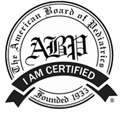– Take time off. Plan to have at least 1 day off per week and at least one month off per year from training for a particular sport to allow the body to recover.
– Wear the right gear. Players should wear appropriate and properly fit protective equipment such as pads (neck, shoulder, elbow, chest, knee, shin), helmets, mouthpieces, face guards, protective cups, and/or eyewear. Young athletes should not assume that protective gear will prevent all injuries while performing more dangerous or risky activities.
– Strengthen muscles. Conditioning exercises during practice strengthens muscles used in play.
– Increase flexibility. Stretching exercises after games or practice can increase flexibility. Stretching should also be incorporated into a daily fitness plan.
– Use the proper technique. This should be reinforced during the playing season.
– Take breaks. Rest periods during practice and games can reduce injuries and prevent heat illness.
– Play safe. Strict rules against headfirst sliding (baseball and softball), and spearing (football), and checking in hockey should be enforced.
– Stop the activity if there is pain.
– Avoid heat injury by drinking plenty of fluids before, during and after exercise or play; decrease or stop practices or competitions during high heat/humidity periods; wear light clothing.



